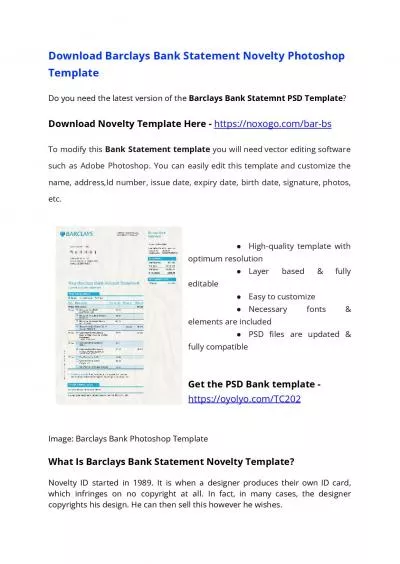PDF-oint statement on public disclosure of results
Author : finley | Published Date : 2022-10-28
J from clinical trials Signatories on 18 May 2017 The Canadian Institutes of Health Research CIHR joined on 28 October 2020 Health Research Council of New Zealand
Presentation Embed Code
Download Presentation
Download Presentation The PPT/PDF document "oint statement on public disclosure of r..." is the property of its rightful owner. Permission is granted to download and print the materials on this website for personal, non-commercial use only, and to display it on your personal computer provided you do not modify the materials and that you retain all copyright notices contained in the materials. By downloading content from our website, you accept the terms of this agreement.
oint statement on public disclosure of results: Transcript
Download Rules Of Document
"oint statement on public disclosure of results"The content belongs to its owner. You may download and print it for personal use, without modification, and keep all copyright notices. By downloading, you agree to these terms.
Related Documents














